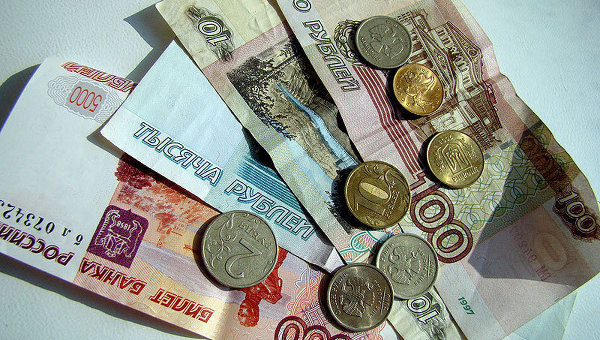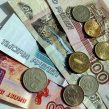
International Isolation Begins to Affect Russia
Publication: Eurasia Daily Monitor Volume: 11 Issue: 65
By:

As the charged pause in the Russian-Ukrainian conflict drags on, policymakers in Moscow discover that their bold breakthrough into the territory beyond the boundaries of international law has brought rather unexciting consequences. Last Monday (March 31), President Vladimir Putin called German Chancellor Angela Merkel, seeking to sustain the conversation with a key partner that had always preferred the policy of engagement (Nezavisimaya Gazeta, Ogonyok, March 31). Since then, however, not a single high-level contact with the West has been recorded, while in March hardly a day passed without a long telephone conversation with one of Putin’s European peers or indeed United States President Barack Obama. Key Western efforts are now focused on providing material support to Ukraine, which has to launch painful economic reforms and to proceed with the presidential elections scheduled for May 25. In the US, for that matter, the approval of the legislation on aid to Ukraine went together with the suspension of the work of the bilateral presidential commission with Russia (Kommersant, April 5).
Russian officials try to shrug off their new status as a pariah state, and they indeed may be not particularly concerned about Russia’s possible expulsion from the Parliamentary Assembly of the Council of Europe this week (https://grani.ru/Politics/Russia/Parliament/Duma/m.227308.html). What they are worried about is the firm stance assumed by the North Atlantic Treaty Organization (NATO), which has found determination to disprove Putin’s expectations that the harder the push, the greater the disarray among the enfeebled allies. It is indeed ironic that Russia’s attempt to assert its ability to use intervention as an instrument of politics has resulted in a healthy reinvigoration of the North Atlantic Alliance (Nezavisimaya Gazeta, April 4). Since Putin’s famous Munich speech in February 2007, Russia has been accusing NATO of deploying military infrastructure close to its borders, and now such deployment indeed becomes a practical matter (https://ej.ru/?a=note&id=24832). Moscow’s mission at NATO Headquarters has to be shut down, and Russian protestations against the “visits” of US cruisers and destroyers to the Black Sea are being indifferently dismissed by the Alliance (Kommersant, April 4).
This re-established commitment to containment has already made an impression as Russian troops remain idle along the eastern borders of Ukraine. Meanwhile, Putin has issued a decree to draft 154,000 new conscripts into the Armed Forces and release from service soldiers drafted last spring, who make the better-trained half of the not-so-big battalions (https://president.kremlin.ru/news/20659). Eastern Ukraine is potentially explosive after pro-Russian activists occupied government buildings in Donetsk, Luhansk and Kharkiv (Kyiv Post, April 6). For now, Moscow has refrained from stirring overt, violent unrest there, slamming instead the Ukrainian government with the price on natural gas increased to $485.5 per 1,000 cubic meters, which is about a third higher than the price Germany pays (RBC Daily, April 4). Ukraine can certainly challenge this punishing price in the Stockholm arbitrage court (where several European customers have already forced Gazprom to grant significant discounts), but this will take time, while Russia is clearly preparing to stop gas supplies to Ukraine completely due to accumulated indebtedness (https://newsru.com/finance/05apr2014/ukrgaswar.html).
This new edition of a “gas war” will be significantly different from the shutdown in January 2009, and it may propel the European Union toward greater determination to reach collective action, much the same way as the fact of Russian military intervention in Crimea has energized the North Atlantic Treaty Organization (NATO). Indeed, it is concern over their dependency on gas imports that shapes the reluctance of many European states to target significant Russian interests, but an attempt by Moscow to exploit this vulnerability might convince the affected customers that tougher sanctions are in order. Russia’s economy has already entered recession caused by a massive outflow of capital, and it can take only that much punishment before sinking into a crisis that could go deeper than the 9–10-percent contraction in the autumn of 2008 (https://www.gazeta.ru/business/2014/04/02/5976821.shtml). “Patriotic” experts argue for reducing the circulation of the US dollar in the Russian economy in order to shelter the financial system from external impacts. But former finance minister Alexei Kudrin countered that restrictions on the free movement of capital would add to the scale of looming economic disaster (Kommersant, April 3).
Putin has started this presidential term with ambitious plans based on the premise of strong economic growth, and instead of adjusting them to the reality of protracted stagnation, he rushed into the expensive enterprise of annexing Crimea. For now and perhaps for a few more weeks, the joy of capturing this “prize” erases the need to explain away the staggering costs, but the public enthusiasm is certain to subside, while the pain can only increase (https://www.newtimes.ru/articles/detail/80960). The key driver of failure of the economic model based on firm state control over the distribution of petro-revenues is rampant corruption, and Western sanctions are only forcing the Kremlin to protect the loyal looters (Vedomosti, April 3). No sign exists of any kind of mobilization in key economic sectors aimed at making Russia ready to withstand the building pressure from the West. At the same time, there are few signs of splits among the elites, because the frustration caused by the decline of their fortunes is, for the time being, eclipsed by fears about investigations of their massive export of corruption to the West, so that loyalty appears to be a safer choice.
Putin may have taken a step back from the brink of a decisive—and quite probably disastrous—military intervention into Eastern Ukraine, but he is still trapped in the escalation mode of keeping the initiative, so that the moment Russia stops moving it starts losing. Changing the method of offensive to the familiar manipulation of gas levers might seem to be a smart move since Moscow expects to play this power game from a position of strength. This strength, however, could turn out to be imaginary because the fast-moving global revolution in energy affairs has already left Russia behind as a designated loser. The credibility of energy deterrence is weakened every time the “gas weapon” is put into action—with much weaker impact than expertly predicted. Russia has no chance of winning the economic tug-of-war with the EU, but it feels compelled to keep jerking the ropes of inter-dependency in order to check the slow slide into the jaws of defeat. The sober voices in Russia warning that the country will need to learn to live in disgraceful isolation and prepare for long-haul confrontation may actually be wishfully optimistic.




